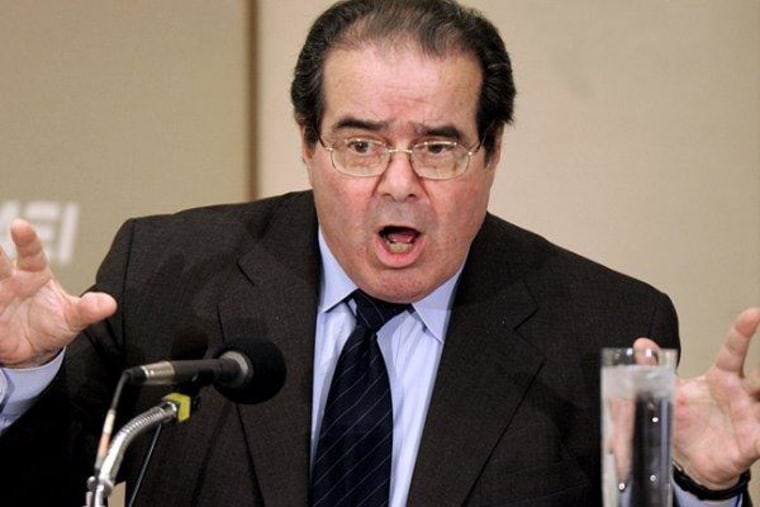Justice Antonin Scalia's dissent (pdf) in U.S. v. Windsor, the ruling that struck down the Defense of Marriage Act, is not subtle in its anger. The conservative Supreme Court jurist refers on page 22, for example, to the "legalistic argle-bargle" the court majority uses as its rationale.
And as Paul Waldman explained, the dissent goes downhill from there.
Scalia is outraged at the majority's contention that the core purpose of DOMA was to discriminate against gay people, and this, he asserts, means that they're calling everyone who supports it a monster. "To defend traditional marriage is not to condemn, demean, or humiliate those who would prefer other arrangements, any more than to defend the Constitution of the United States is to condemn, demean, or humiliate other constitutions. To hurl such accusations so casually demeans this institution," he writes.And more: "It is one thing for a society to elect change; it is another for a court of law to impose change by adjudging those who oppose it hostes humani generis, enemies of the human race."
Yes, apparently Scalia is feeling a little defensive, so much so that he believes those who disagree with him are calling him an enemy of humanity. One gets the sense reading his dissent that he doesn't want to be seen as a bigot, just because he's on record describing homosexuality in his Lawrence v. Texas dissent as "a lifestyle" that should be seen as "immoral and destructive."
But let's also not overlook this curious argument from the beginning of his DOMA dissent:
"This case is about power in several respects. It is about the power of our people to govern themselves, and the power of this Court to pronounce the law. Today's opinion aggrandizes the latter, with the predictable consequence of diminishing the former. We have no power to decide this case. And even if we did, we have no power under the Constitution to invalidate this democratically adopted legislation. "
Really? When it's the Voting Rights Act and the Affordable Care Act on the line, Scalia doesn't hesitate to take an axe to "democratically adopted legislation," approved by the elected representatives of Americans who are able to "govern themselves." But when it's the Defense of Marriage Act, Scalia suddenly remembers his affinity for restraint?
Exactly one year ago yesterday, following some of Scalia's partisan antics, a constitutional law professor at UCLA said the conservative jurist "has finally jumped the shark." At the time, that seemed like a reasonable assessment, and yet, Scalia somehow manages to get worse.
Update: Sahil Kapur takes the next step, listing "the top 10 quotes from the staunchly conservative jurist — a mix of rage-filled metaphors and legal punches."
